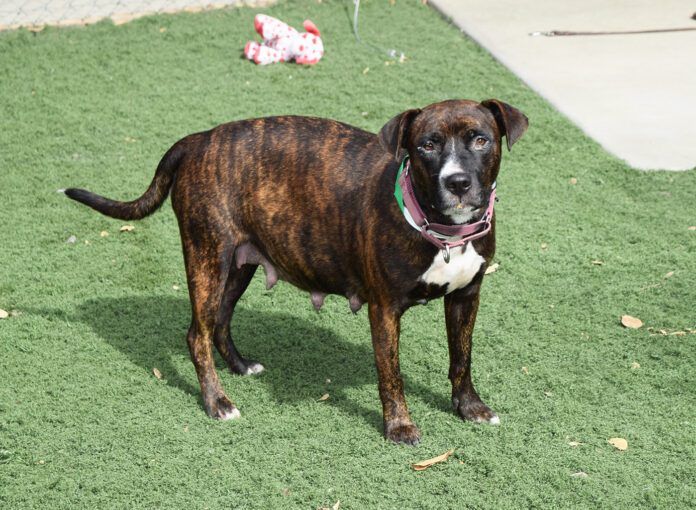With the exception of dog breeders, many dog owners will have little experience with pregnancy in dogs. It may surprise you to learn that, while human pregnancies typically last around nine months, the dog gestation period is much shorter, averaging just nine weeks or 63 days. Since the pregnancy period is so short, each day matters that much more. Dog owners must be able to recognize the stages and signs of dog pregnancy to provide the best possible care for the expectant mother and pups along the way.
Signs of pregnancy in dogs
If your dog has been spayed, there is no chance she will become pregnant. However, intact female dogs typically go through heat around every six months during which they may become pregnant. When your dog will go through heat does vary with different breeds with some dog breeds only going through heat once a year. Check with your dog breeder or the dog breed national parent club to find when your dog is most likely to go into heat. There’s currently no instantaneous dog pregnancy test like humans have, but there are certain signs of which to be aware. Note that most dogs won’t show clinical symptoms during the first few weeks of the pregnancy (gestation) period.
Here are five signs of pregnancy in dogs:
- Weight gain
- Increase in appetite
- Swollen belly
- Enlarged nipples
- Increased affection seeking
Once you suspect your dog may be pregnant, bring her to your veterinarian as soon as possible. There, a vet can perform diagnostics including palpation (feeling the abdomen for swelling), hormone tests, X-rays and ultrasounds to confirm a dog’s pregnancy.
Care during a dog’s gestation period
Since canine pregnancy lasts just nine weeks, it’s imperative to monitor your female dog closely during the dog gestation period. This will help you catch any irregularities or possible complications as early as possible. You should also consult with your vet early on and visit regularly as your dog’s pregnancy progresses. Having a plan in place for the birthing of puppies will help you be better prepared for the big moment.
Feed pregnant dogs a high-quality diet, with no changes to normal food intake during the first two-thirds of the gestation period. After six weeks of pregnancy, slowly increase food intake to keep up with the growing mother-to-be. Omega-3 fatty acids are vital to developing puppies, so consider a supplement if you think your dog’s diet could use a boost.
Lastly, prepare as best you can for puppies with a whelping box and any other necessities for a smooth birthing process. Dog pregnancies can be a whirlwind and nine weeks goes by fast. If you follow the right steps, your pregnant dog will soon be the proud parent of a litter of happy and healthy puppies.





